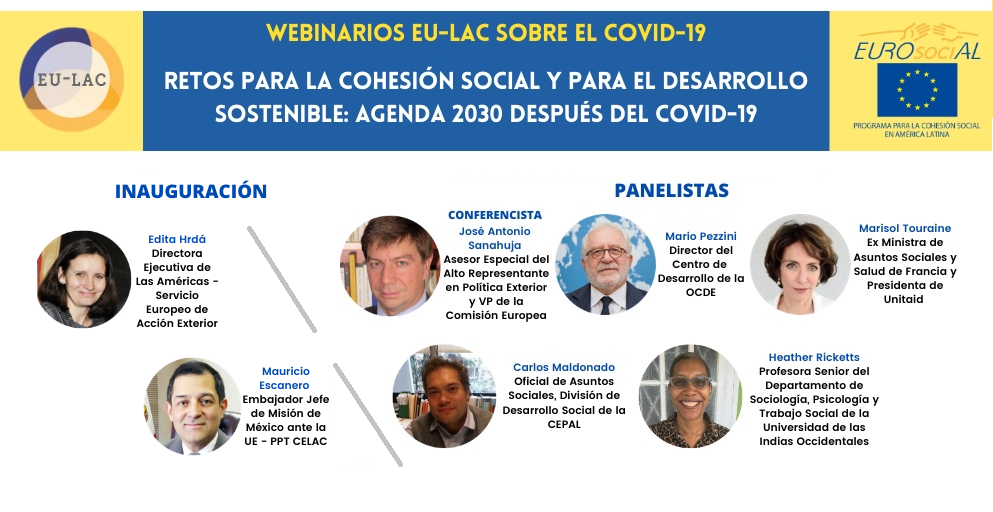The European Union’s EUROsociAL+ Programme and the EU-LAC Foundation carried out an exchange that once again calls upon the Europe - Latin America alliance to overcome the crisis and return to the pursuit of the Sustainable Development Goals

During the seminar, which was attended by 220 representatives from different organisations and institutions, the importance was highlighted of coordinating efforts through a new and renewed multilateralism to avoid a severe economic crisis and a serious setback in terms of poverty, inequality and social cohesion. Likewise, the creation of a regional round table was discussed that would address fundamental issues
such as the debt crisis and the barriers faced by Latin American countries in accessing international funds and loans.
The need for the European Union to invest more political capital and strengthen its constructive engagement strategy within the region was pointed out. In contrast to the balance of power calculations by the US and China, the EU is the only global player approaching regional geopolitics with an agenda focused on the concerns of Latin American societies: employment, social inclusion, the rule of law, citizen safety and the environment. It is a key player when it comes to combating the complex and global impact of the pandemic.
The shock caused by covid-19 has reached such an extreme that it is no longer possible to hope that societies could absorb its effects using adaptive measures. Strategies are needed to rebuild social capital, economic capital and human capital, that is, the mainstays of any society’s strength, along with its natural capital, all of which have been greatly eroded by the crisis. But the magnitude of the effort to rebuild or strengthen them varies greatly from country to country as it depends on the starting conditions. In countries where the crisis has revealed systemic weaknesses, reforms that were already on public agendas (not necessarily on government agendas) are today far more urgent and must be more ambitious and radical. Furthermore, it is not just about going back to the period before the pandemic. The challenge is to push for qualitatively different development by once again taking up the path towards the goals of the 2030 Agenda. This crisis presents an unmissable opportunity to make the green and social sustainability model proposed by the European Green Deal a reality



